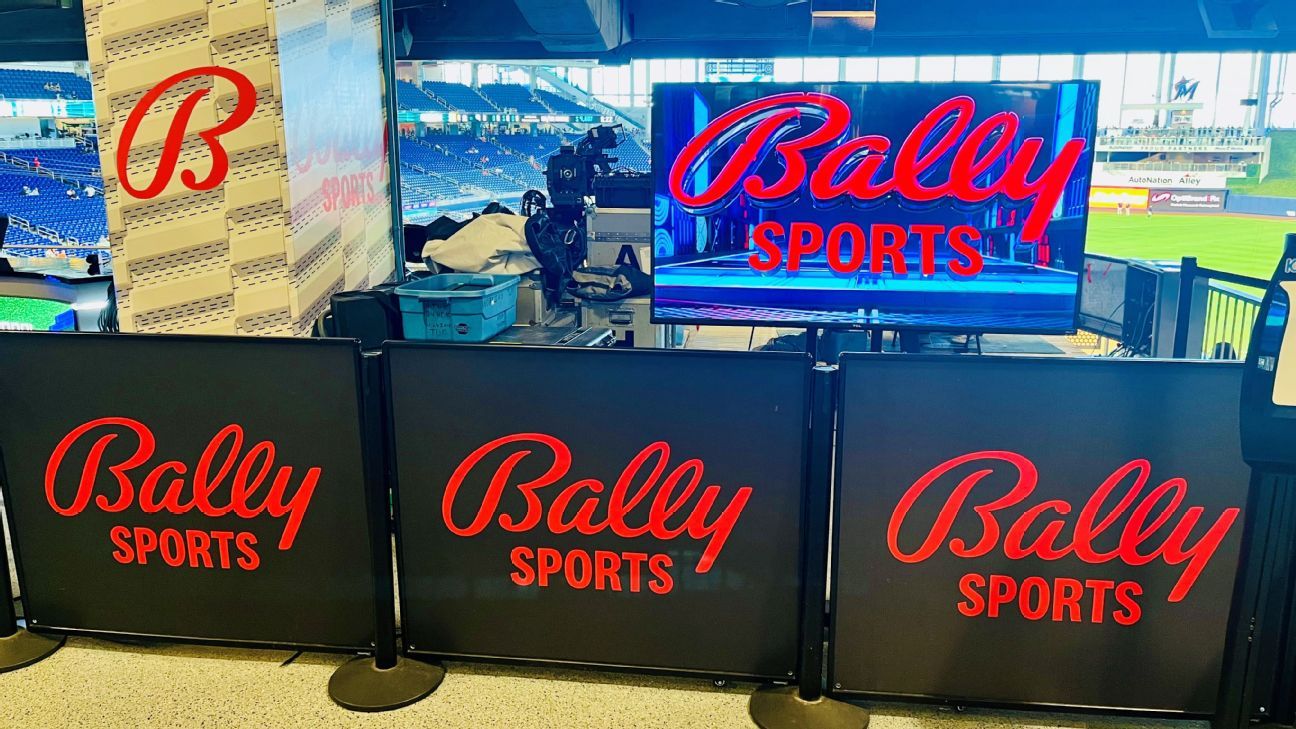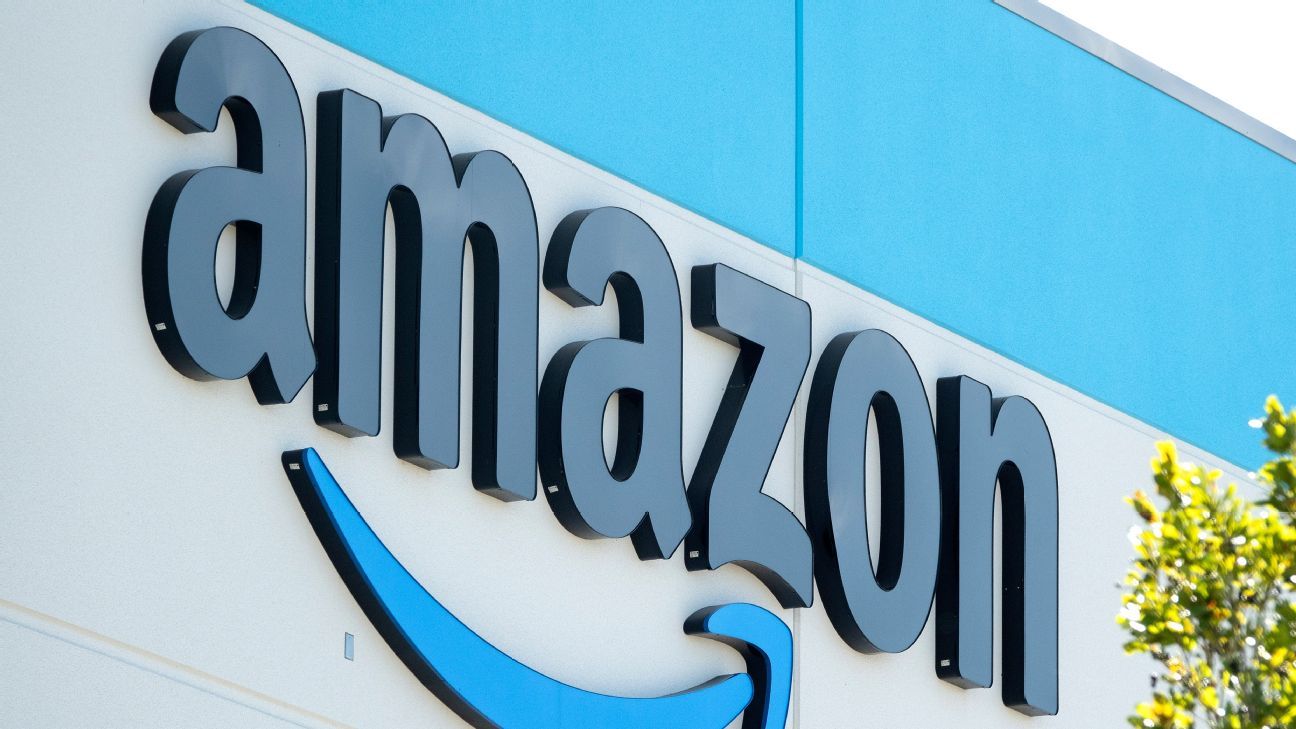You are using an out of date browser. It may not display this or other websites correctly.
You should upgrade or use an alternative browser.
You should upgrade or use an alternative browser.
Sinclair/Ballys/ESPN/TNT ... broadcasting access, tips and notes
- Thread starter *AH*
- Start date
And now they own their own network, buying NBC Sports Washington and changing it to Monumental Sports Network. It helps that they also own the Washington Magic, WNBA Washington Mystics, G-League Capital City Go-Go and AHL Hershey Bears, so they have plenty of content. They’re also thought to be the front runners to buy the Washington Nationals. And they’re building new studios next to Capital One Arena.Caps used to be on DC 20... they were unaffiliated...
Not to mention an owner who comes from a media technology background. That was a natural shift for the Caps in ways that it wouldn't be for the vast majority of pro sports franchises.And now they own their own network, buying NBC Sports Washington and changing it to Monumental Sports Network. It helps that they also own the Washington Magic, WNBA Washington Mystics, G-League Capital City Go-Go and AHL Hershey Bears, so they have plenty of content. They’re also thought to be the front runners to buy the Washington Nationals. And they’re building new studios next to Capital One Arena.
HeyKurtz
Well-known member
New deal between the NHL and Bally Sports’s parent…

 www.espn.com
www.espn.com

NHL to keep 11 teams' local broadcasts on Bally
The NHL reached an agreement with Diamond Sports Group to keep local broadcasts for 11 teams on Bally Sports through the end of this season.
Which leaves the Canes and 10 other teams 9-10 months to figure out what’s next.New deal between the NHL and Bally Sports’s parent…

NHL to keep 11 teams' local broadcasts on Bally
The NHL reached an agreement with Diamond Sports Group to keep local broadcasts for 11 teams on Bally Sports through the end of this season.www.espn.com
Based on the comments about spotty service that I've seen here and basically everywhere else, the NHL simply cannot be under the delusion that they can continue this charade past this season ... can they? I know delusion is what they serve for breakfast at NHL HQ, but they can't keep discouraging viewership with 3rd rate streaming service performance ... even if it is fairly cheap, as these things go.Which leaves the Canes and 10 other teams 9-10 months to figure out what’s next.
They can’t have that little business sense. Yes they want butts in seats but…They want butts in chairs at the rink, not in front of their tv sets.
- There are a limited number of seats so there’s a cap on that revenue.
- The way to get more butts in seats is to build a bigger fan base.
- The way to more revenue is through more television viewership.
Yeah, old man Wirtz is dead and gone. The owners understand that they need a bigger fan base than they can fit in their building nowadays.They want butts in chairs at the rink, not in front of their tv sets.
I don’t know but that’s where their chance to seriously grow their revenue is. The more people get exposed to hockey the more people are going to potentially buy tickets.How much revenue do they get from tv? Or streaming?
This. The TV/Radio/Streaming revenue itself (and we've never been favored with an actual number) is secondary to growing the market of engaged fans and thus selling them tickets and sweaters and hoodies and whatever in the future. This is not a difficult concept, although it admittedly eluded the NHL for decades.I don’t know but that’s where their chance to seriously grow their revenue is. The more people get exposed to hockey the more people are going to potentially buy tickets.
Which is baffling.…This is not a difficult concept, although it admittedly eluded the NHL for decades.
Although should it be? This is the same crew that can’t figure out player safety, officiating in general, playoff let ‘em play officiating, a shootout to end ties, how to work with the Olympics. Phoenix. Tom Wilson, that #63 toolbag that plays for the brown and yellow team.
Pretty much the only thing they get right is they have a great game which I don’t think they can really take any credit for.
Well, that era featured a lot of owners who were ... let's go with old fashioned. They mostly focused on their own club's bottom line in the short term and gave little thought to growing the game. Radio and TV brought in meager payoffs compared to butts in seats, so butts in seats were all that mattered. And with payrolls artificially restricted by draconian contract and territorial rights rules, an owner could reasonable expect to pay his players and staff and still make a good profit year to year so long as attendance was decent.Which is baffling.
Although should it be? This is the same crew that can’t figure out player safety, officiating in general, playoff let ‘em play officiating, a shootout to end ties, how to work with the Olympics. Phoenix. Tom Wilson, that #63 toolbag that plays for the brown and yellow team.
Pretty much the only thing they get right is they have a great game which I don’t think they can really take any credit for.
It’s why Pete Rozelle was the most consequential commissioner in sports history. He convinced the owners that the best way to succeed was to share broadcast revenue. Now that’s easy in a what was then a 14 game season, not so easy in a 70 game season.Well, that era featured a lot of owners who were ... let's go with old fashioned. They mostly focused on their own club's bottom line in the short term and gave little thought to growing the game. Radio and TV brought in meager payoffs compared to butts in seats, so butts in seats were all that mattered. And with payrolls artificially restricted by draconian contract and territorial rights rules, an owner could reasonable expect to pay his players and staff and still make a good profit year to year so long as attendance was decent.
Fayettenamcanesfan
Well-known member
Amazon is investing in Diamond sports group and will allow them to emerge from bankruptcy (if approved by the bankruptcy court). They will provide access to the RSNs through Amazon Prime. They will also still be available on cable and satellite

 www.espn.com
www.espn.com

Amazon agreement saves bankrupt RSN provider
Amazon will partner with Diamond Sports as part of a restructuring agreement as the largest owner of regional sports networks looks to emerge from bankruptcy.

